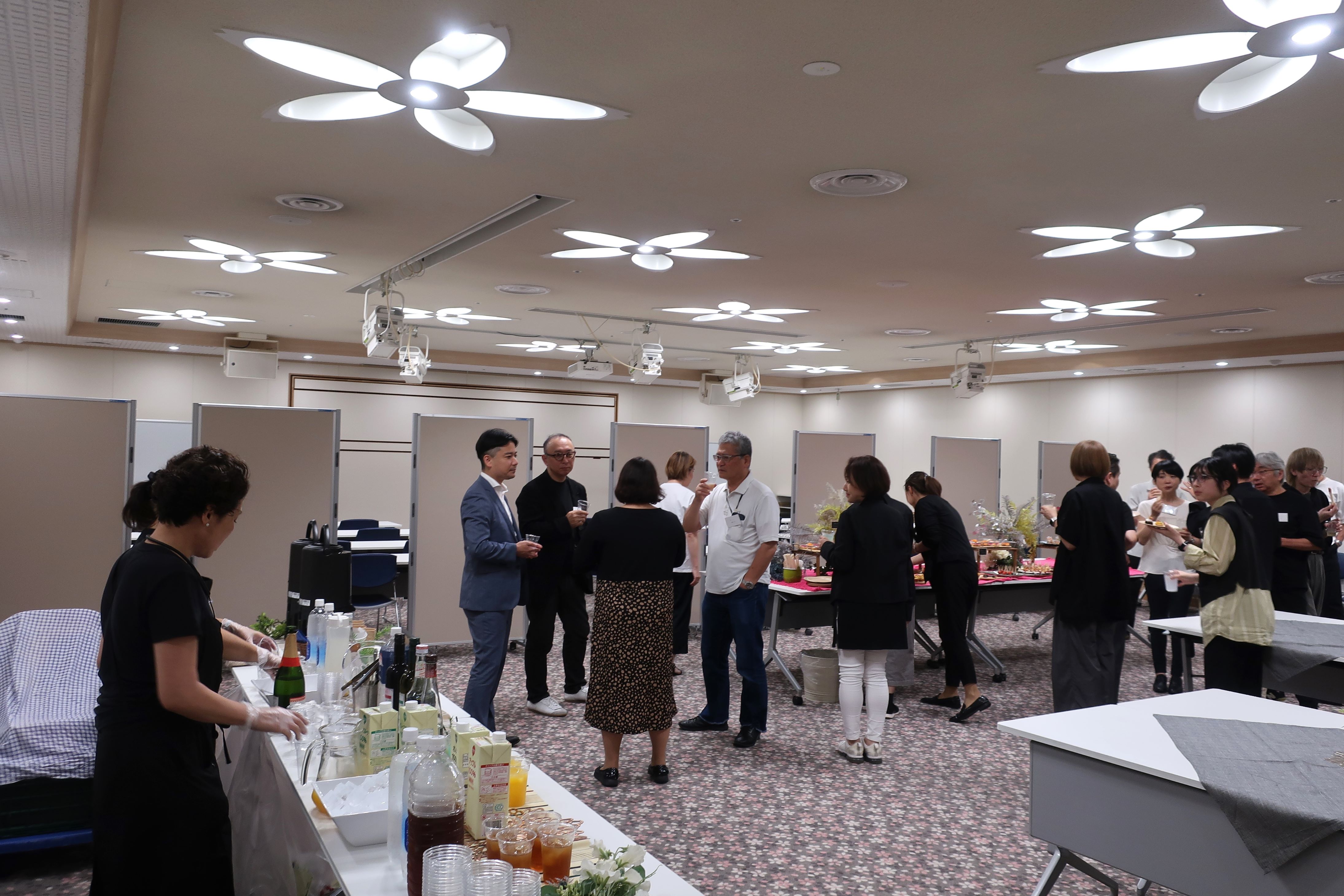Activity
Event/Workshop Report
2024.07.12
Compliance Training (the 1st )
Compliance training organized by IALD Japan was held on June 12, 2024 at Curian, Oimachi.
The invited lecturer was attorney Mr. Keita Saito who spoke on the topic of “Recent Harassment Situation and Countermeasures”.
Attorney Saito began by explaining that “in general, harassment is any behavior or attitude that causes discomfort or disadvantage to others or offends their dignity, regardless of the intent of the harasser,” and that “it is not acceptable for the harasser to say that he or she did not mean to do so”.
He pointed out that the number of behaviors and attitudes recognized as harassment has been on the increase in recent years. He briefly introduced power harassment, sexual harassment, age harassment, gender harassment, etc. by genre, and prefaced his talk by saying, “Today, I will focus on power harassment and sexual harassment”.

First, on sexual harassment.
He explained that the definition of sexual harassment by the Ministry of Health, Labor and Welfare is “Sexual harassment in the workplace, in which a worker is disadvantaged by sexual words or actions that go against the worker’s will,” and that words or actions at a drinking party outside working hours can also be considered sexual harassment if the party is considered an extension of work duties, and that any person regardless of gender can be an offender or a victim. He also explained that what a worker says or does at a drinking party outside of working hours can be considered sexual harassment if the drinking party is considered an extension of work duties and that a worker can be the offender or victim regardless of gender.
He also explained that the standard for determining whether a person is sexually harassed “requires a certain degree of objectivity while placing importance on the subjectivity of the recipient, and is based on the way the average male or female worker feels”, and that persistent invitations to meals and other actions such as viewing indecent images on a computer can constitute sexual harassment.
Next, was about power harassment.
Power harassment is “an act of inflicting mental or physical pain and suffering against a background of superiority in the workplace that exceeds the proper scope of work.” Regarding “superiority,” not only acts by a superior toward a subordinate but also acts between colleagues and acts by a subordinate toward a superior can constitute power harassment.
In a case in which the court questioned whether strict instruction of a hospital employee who repeatedly made simple mistakes constituted power harassment, the court ruled that “such conduct in the medical field, where lives are at stake, is within the scope of work-related instructions that should naturally be given, and does not constitute power harassment”.
He then briefly touched on maternity harassment, customer harassment, and harassment harassment, which is dismissal or other disadvantageous treatment because of pregnancy, childbirth, or other reasons.
In the explanation of customer harassment, it is important to confirm the basis of the request, the facts, and whether we were at fault when we receive a complaint from a customer.
He explained that the question of whether or not a request is customer harassment is determined by whether the means and manner in which the request is fulfilled is permissible based on current social thinking.
Harassment harassment is “the act of claiming harassment for legitimate acts such as work instructions,” and also pointed out that if Harassment harassment is left unchecked, supervisors are less likely to give instructions to their subordinates, resulting in lower quality work and a worse atmosphere in the workplace.
He then moved on to “What should a company do against harassment,” explaining that the 2020 amendment of the law made it mandatory to take preventive measures against power harassment, sexual harassment, etc.
Next, as important measures to be taken by the company, the following were mentioned: “to show the company’s thoughts and stance on harassment through the website, employment regulations, etc.,” “to set up a consultation service and make it known to all employees,” and “to respond promptly and appropriately if harassment is found.
Based on the Ministry of Health, Labour and Welfare’s guidelines on how to respond to harassment, he stated that it is important to “record the behavior that may be considered harassment by writing down or recording it,” “consult with colleagues, superiors, or human resources staff,” and “if you cannot consult at the company, consult with an outside consultation service such as the Labor Standards Inspection Office”.
He concluded by saying that harassment can be made worse by putting up with it or ignoring it, so the important thing is to tell the harasser to “stop”.
The Q&A session that followed saw lively questions being asked until the very last minute.
The reception was also a valuable opportunity to hear directly from the lawyers about matters that are usually difficult to ask.


This training will be conducted three times in total.
The next event is scheduled to be held with a theme selected based on this year’s survey.
Members are encouraged to attend.
Date : June 12, 2024
Venue: Curian, Oimachi
